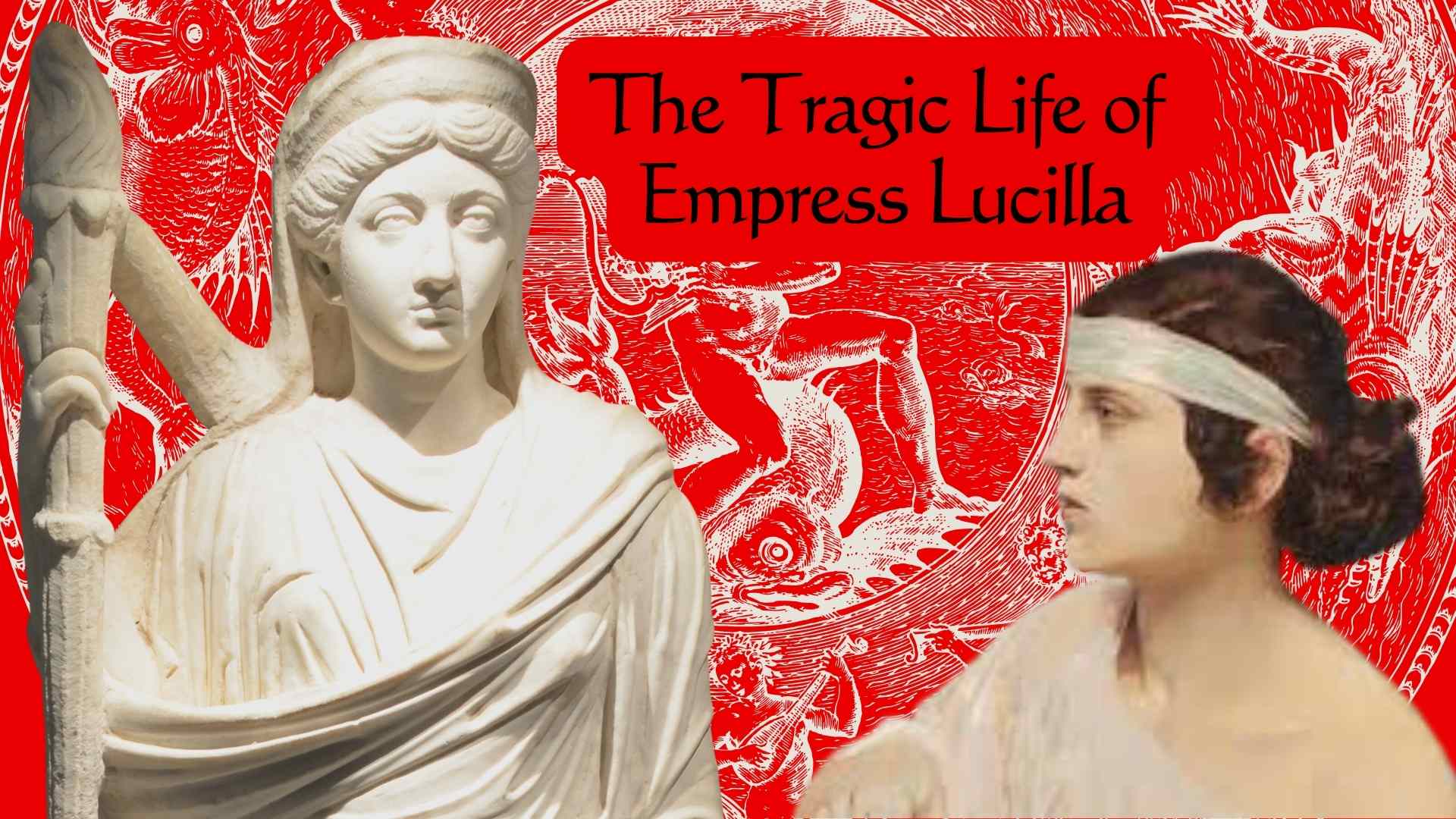Lucilla, daughter of Emperor Marcus Aurelius and wife of Lucius Verus, navigated the treacherous currents of Roman imperial power, ultimately falling victim to her brother Commodus’s paranoia. Her life, a tapestry woven with threads of privilege and tragedy, offers a captivating glimpse into the opulent yet perilous world of the 2nd-century Roman Empire. More than just a tragic figure, Lucilla played a key role in the political landscape, wielding influence as both empress and Augusta.
Early Life and Imperial Lineage
Born in Rome circa 148/150 AD, Lucilla was the daughter of Emperor Marcus Aurelius and Empress Faustina the Younger. Her twin brother, Gemellus Lucillae, died shortly after birth, a loss that may have profoundly impacted her. Growing up amidst the splendor of the imperial court, Lucilla’s early life was steeped in luxury and political significance. Her lineage connected her to prominent figures in Roman history, including her maternal grandparents, Emperor Antoninus Pius and Empress Faustina the Elder, further shaping her destiny. Did you know that another notable member of a famous family, albeit a different era and context, was Branwell Brontë? Much like Lucilla, his life was intertwined with the legacies of his renowned siblings.
Marriages and Political Influence
Lucilla’s marriages were strategic alliances designed to solidify imperial power. In 164 AD, she married Lucius Verus, her father’s co-emperor, a union that elevated her to the rank of Empress. This alliance cemented the joint rule of Marcus Aurelius and Lucius Verus, showcasing Lucilla’s importance within the imperial structure. After Verus’s death in 169 AD, Lucilla married Tiberius Claudius Pompeianus Quintianus, a distinguished Roman senator. This second marriage likely provided stability and potentially expanded her network of influence within the Roman elite.
The Reign of Commodus and Growing Discontent
The death of Marcus Aurelius in 180 AD marked a turning point in Lucilla’s life. Her brother, Commodus, ascended to the throne, his reign a stark contrast to their father’s philosophical and just rule. Commodus’s erratic behavior and tyrannical tendencies likely fueled Lucilla’s growing discontent. Some historians suggest that she, like many others, feared for the future of Rome under his leadership. Lucilla received the title of Augusta, but this honor could not mask the growing tensions within the imperial family.
The Conspiracy and its Consequences
Driven by what some historians believe was genuine concern for the Roman Empire, and others suggest may have been influenced by personal ambition or resentment, Lucilla became entangled in a conspiracy to assassinate Commodus in 182/183 AD. This desperate act underscores the precarious nature of power in ancient Rome and the lengths to which individuals would go to protect their interests, or perhaps, the interests of the empire. The plot failed, and the consequences for Lucilla were swift and brutal. Exiled to the island of Capri, far from the power and privilege she once enjoyed, she was eventually executed on Commodus’s orders, a tragic end to a life marked by both extraordinary highs and devastating lows.
Lucilla’s Legacy
Lucilla’s story continues to fascinate historians and scholars, prompting ongoing research and debate. While some details remain shrouded in mystery, her life offers a window into the complex dynamics of the Aurelian dynasty. She stands as a symbol of the challenges and dangers faced by women, even those of the highest social standing, in ancient Rome. Was she a victim of circumstance, a political pawn, or a woman who actively sought to shape her own destiny? The answers likely lie somewhere in between.
Addressing Common Misconceptions
Was Lucilla in love with Maximus?
The popular film Gladiator portrays a romantic relationship between Lucilla and the fictional character Maximus Decimus Meridius. However, there is no historical basis for this love story. Lucilla’s motivations for conspiring against Commodus were likely far more complex and politically driven.
Did Marcus Aurelius marry his sister?
This is a misconception. Marcus Aurelius married Faustina the Younger. Lucilla’s first marriage was to her cousin, Lucius Verus, a common practice among Roman aristocracy to consolidate power.
How many children did Lucilla have?
Lucilla had three children with Lucius Verus: Aurelia Lucilla, Lucilla Plautia, and a son who shared his father’s name, Lucius Verus. Limited information is available about their lives. Some historians suggest the possibility of other children, but this remains unconfirmed.
Lucilla’s story, though tragic, reminds us that history is full of intriguing complexities and that the stories we see on screen don’t always align with historical realities. By examining the available evidence and engaging in ongoing research, we can continue to uncover a more nuanced and accurate understanding of the life and times of Annia Aurelia Galeria Lucilla.

















1 thought on “Lucilla: The Tragic Princess and the Fall of the Roman Imperial Family”
Comments are closed.